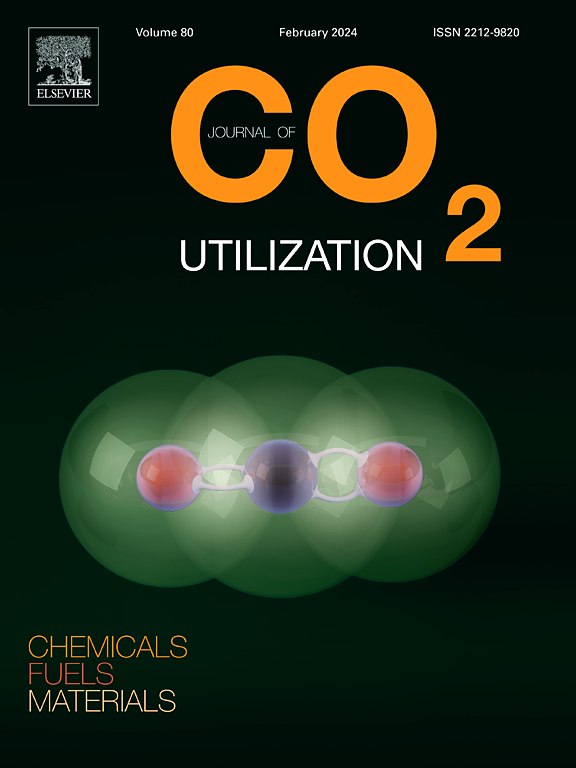Machine learning of metal-organic framework design for carbon dioxide capture and utilization
IF 7.2
2区 工程技术
Q1 CHEMISTRY, MULTIDISCIPLINARY
引用次数: 0
Abstract
Metal-organic frameworks (MOFs) are attractive materials with easily tunable porous structures. Their selective carbon dioxide (CO2) capture ability can be varied by altering the functionality of the organic ligands. However, rule-based approaches to tuning and developing MOFs with high CO2 capture and conversion abilities are hindered by the numerous possible combinations of metal ions and organic linkers. Recently, machine learning (ML) has been applied to unravel key descriptors in predicting the performance of MOFs. This review summarizes recent advancements in ML models for MOFs in CO2 capture and utilization, including high-throughput screening, neural network interatomic potential, and generative models. The development of sophisticated ML models for designing high-performance MOFs will play a critical role in addressing climate change in the future. Finally, the main challenges and limitations of current approaches in designing high-performance MOFs are discussed.
用于二氧化碳捕获和利用的金属有机框架设计的机器学习
金属有机框架(MOFs)是一种极具吸引力的材料,具有易于调整的多孔结构。通过改变有机配体的功能,可以改变其选择性二氧化碳(CO2)捕获能力。然而,由于金属离子和有机连接体的可能组合较多,基于规则的方法难以调整和开发具有较高二氧化碳捕获和转化能力的 MOFs。最近,机器学习(ML)已被用于揭示预测 MOF 性能的关键描述符。本综述总结了在二氧化碳捕获和利用中使用 MOFs 的 ML 模型的最新进展,包括高通量筛选、神经网络原子间势能和生成模型。开发用于设计高性能 MOFs 的复杂 ML 模型将在未来应对气候变化方面发挥关键作用。最后,讨论了当前设计高性能 MOFs 方法所面临的主要挑战和局限性。
本文章由计算机程序翻译,如有差异,请以英文原文为准。
求助全文
约1分钟内获得全文
求助全文
来源期刊

Journal of CO2 Utilization
CHEMISTRY, MULTIDISCIPLINARY-ENGINEERING, CHEMICAL
CiteScore
13.90
自引率
10.40%
发文量
406
审稿时长
2.8 months
期刊介绍:
The Journal of CO2 Utilization offers a single, multi-disciplinary, scholarly platform for the exchange of novel research in the field of CO2 re-use for scientists and engineers in chemicals, fuels and materials.
The emphasis is on the dissemination of leading-edge research from basic science to the development of new processes, technologies and applications.
The Journal of CO2 Utilization publishes original peer-reviewed research papers, reviews, and short communications, including experimental and theoretical work, and analytical models and simulations.
 求助内容:
求助内容: 应助结果提醒方式:
应助结果提醒方式:


